At the Hanzehogeschool in Groningen is a 6 month program: ‘Game on‘ for international students to work in applied game development. While working on a HIV awareness game for Kenya, they are inspired by workshops by guest teachers, I was so lucky to do one workshop on the magic game circle as a tool to discuss gamedesign using Pacman and it’s recipe and ingredients. I enjoyed the short time and intens discussion with this group a lot! See the kick off Prezi presentation here >>
See some results here, trying to “define” the recipe of Pacman before and after using the magic game circle as a model. In the first attempt to find all ingredients and the recipe, none of the five teams included, dying, frustration, but all wrote “FUN” and “CHALLENGE” and were not able to make that explicit. After introducing the model there was lot’s to discuss and more features, game mechanics and game play become a topic while using the model, dying, failing, thrill, heroism, rewarded, succeeding, exitement, frustration etc…
| Before | After |
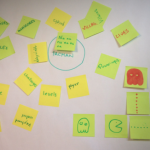 |
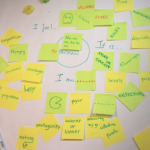 |
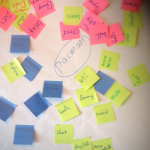 |
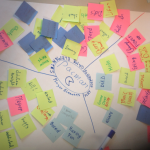 |
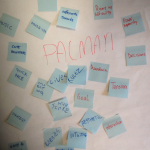 |
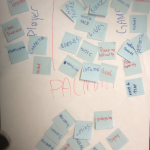 |
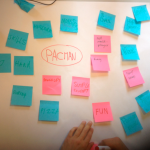 |
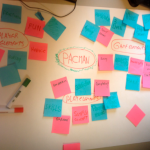 |
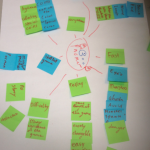 |
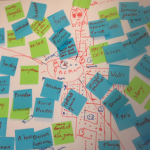 |


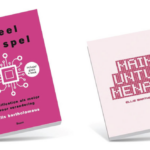

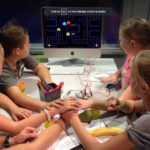

11 Responses
Thank you Ellis for the presentation yesterday. Your information was very useful. You made me think more about “what should the player feel while playing the game” and “what is the player doing while playing the game”. I think this will come in handy for our school project and personal projects.
Kind regards,
Stephan
Hi Stephan, Thank you very much for your reply, this is exactly what I am hoping to bring across, the importance of the players experience… that is what we are desinging games for ; )
Good luck with your Kenya-project.
(ps I will upload your magic circles soon in this post)
Thanks for the workshop!
I talked to students and lecturers afterwards and they found it very usefull. It provided for a new perspective on their (our) work right now; developing a game for HIV/AIDS awareness.
Harro
Hi Harro,
Thank you for letting me know! That makes it double worth the trip to Groningen!
Welcome to invite me again any time.
[ Feedback from the students via the School ]
I found Ellis’ session very informative and interesting. I liked the interactivity of the class as I felt we were able to learn better through this method of teaching. Ellis taught us about the power of game elements and how they are of great importance in game design and the end result which is game play. We noted the ideas which she spoke about in this session and will use them in our own game design as they would be very effective in achieving a suitable game for our target audience. We shared ideas with other teams during this session and I also found that very helpful as we were able to voice our own opinions in doing so.
The presentation gave us a different look at game elements. This helped us with designing the user experience.
[ Feedback from the students via the School ]
This again was a very interactive class, it was more of a workshop that we participated in than a lecture we listened to which I found very useful for remembering the information we were given.
I thought this was a great workshop because it thought us about the game design circle and really helped us retain the information because it was so interactive. It also made us think about the game we were designing from the aspects of the player, the game design and the game play.
I really liked the presentation of Ellis because she based her arguments and her examples on very simple concepts but very illustrative.
[ Feedback from the students via the School ]
Ellis session was a bit of an eye opener. Previously we had been too vague to ourselves without even realizing it. With the newly introduced aspects of game development, Play, player and game elements, it’s been easier to see what we need to focus on in the game objectives.
[ Feedback from the students via the School ]
Ellis Bartholomeus showed us that it was possible to create a game out of everything and that it was one of the best ways to learn or change behaviors.
[ Feedback from the students via the School ]
Thanks to the workshop, Ellis Bartholomeus made me think more thoroughly about how elements used in the influence more than just the physical gameplay, they also have a great impact on how the player feels like when playing the game. She taught us to translate game elements into emotions the player experiences when facing them.
[ Feedback from the students via the School ]
It is safe to say that Ellis Bartholomeus definitely made me think about the player’s experience as the most important aspect when designing a game. And as a bonus, I got to know some fun facts about Pacman like that it was first introduced to attract more females to arcades.
[ Feedback from the students via the School ]
Ellis’s lecture was more like a workshop.This workshop was really good for us because it was more interactive than the rest of the lectures. I found the theory of the ‘magic circle’ really interesting and I think it’s something we thought about by the time we had to create the idea of the game.